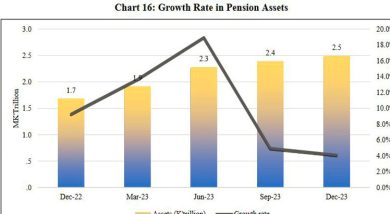Financial sector should exceed customer expectations
No business can do without customers. In business, customer satisfaction is at the core of business success; hence, many businesses worldwide invest in customer satisfaction surveys to gauge how the customers rate the service they offer.
With the dawn of the social media, many Malawians express their frustrations with the services offered by various players through status posts which attract reactions from other equally unimpressed customers.
Poor service in the financial sector, mostly commercial banks, and telecommunications network operators feature highly among the concerns. For the banks, the poor service ranges from unreliable electronic banking platforms and congestion in banking halls to general lack of courtesy by some frontline staff.
Recently, The Nation published a story in the Business News section under the headline ‘Poor service chokes financial sector’. The story was based on findings of the Reserve Bank of Malawi (RBM) Financial Institutions Supervision reports from 2014 to 2018.
Briefly, the reports showed that poor customer service continue to dominate the list of complaints addressed to the regulator of financial services. In 2018, out of 203 complaints received, 89 were related to poor customer care, 63 were due to financial abuse while 10 cases were due to lack of financial awareness and capability on the part of consumers.
To their credit, commercial banks in the country have kept abreast with advances in information technology which has seen many of them introduce innovative products to enhance customer convenience when it comes to banking. The innovations include automated teller machines (ATMs), point of sale (PoS) devices as well as mobile and internet banking.
However, most of the electronic banking platforms have left many customers inconvenienced and embarrassed, making them lose confidence in the technologies. If you have ever been embarrassed at the till in a supermarket because the PoS has “no network” or you have had water supply disconnected after paying online you will appreciate the customers’ frustration.
The lack of dependability on electronic platforms defeats the banks’ desire to end multiple queuing by encouraging customers to use PoS and electronic funds transfer modes. No wonder, Malawi remains one of the cash-based economies where people move around with high amounts of cash that puts their lives at risk.
I have ever waited for over a month to have a refund from my bank after my account was debited but the ATM, of a third-party bank, did not disburse the cash. The two banks kept pushing the blame on each other. I wondered how many other customers suffer in silence, besides the money does not earn any interest during the 20-plus days the banks withheld it from my account.
Banks can do better in the management of the refunds for abortive transactions than is the case now when one has to lodge a claim or complaint.
In case of the PoS devices, there is also an emerging trend in supermarkets where customers are told at the pay point, after enduring a long queue, to go to a ‘PoS queue’ (mzele wa machine, as they put it). This is an unnecessary inconvenience. It is important that banks supply adequate PoS devices.
From the look of things, some till operators in supermarkets tend to resist the use of PoS devices. They trade all sorts of excuses, including that “there is no network” or “the machine is dead [battery drained”. Perhaps, it is time the commercial banks, through the Bankers Association of Malawi, established the underlying causes of the resistance.
Time is money, customers should not be inconvenienced unnecessarily.
I am looking forward to an improved status in terms of customer service in the next RBM report.
For now, players in the financial sector should strive to exceed customers’ expectations in terms of service offering.





